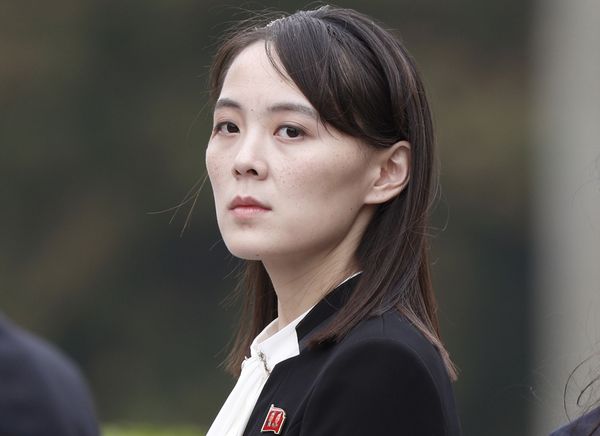Warning: Aboriginal and Torres Strait Islander readers are advised that this article contains the name and images of people who have died.
The late musician's daughter has granted permission for the ABC to use his name and image.
Aboriginal rights champion and Mop & The Dropouts bass guitarist Uncle Robert "Bimbo" Duncan has died just a day after the band's legacy was recognised.
The band, which influenced generations of Indigenous singer-songwriters and musicians, was honoured with the QMusic Lifetime Achievement Award at the Queensland Music Awards last week.
The following day, Uncle Bimbo, 67, a Koa and Gungarri man, died peacefully in aged care, surrounded by family in Cherbourg, the town where he was born in 1954.
Uncle Bimbo's daughter Natasha Duncan said she believed her dad "just knew it was time to go".
Ms Duncan said he was "an entertainer until the end".
"He's our entertainer. He's our emcee for every party and every funeral," she said.
"He was the person that the community looked for to be the emcee of certain events, for the football, and the netball and touch because all of his children played a part in all those events as well."
He joined the Mop & The Dropouts, led by singer Dennis "Mop" Conlon, in his 20s, and would play in the band until about two years ago, when he became ill.
Music, land rights and advocacy
When worldwide attention was focused on Brisbane during the 1982 Commonwealth Games, First Nations protesters took the opportunity to march against racism.
After watching news coverage of the protests and the arrests that followed, Uncle Mop wrote the iconic song Brisbane Blacks — a genuine depiction of life as an Aboriginal person in Queensland during the 1980s.
Like Uncle Mop, Uncle Bimbo didn't consider himself political but rather a community man with a love of music.
Uncle Mop said he shared non-stop laughs with Bimbo on every tour.
"We knew how to make music with the nod of our heads or the raising of an eyebrow, that's how we made music."
Committed to community-led healthcare, Bimbo also worked at the Aboriginal Torres Strait Islander Community Health Service (ATSICHS) in Brisbane for more than a decade.
Uncle Bimbo, a Koa traditional owner, also helped lead the decades-long fight to reclaim native title recognition for the nearly 865,000 hectares of land near Corfield, Winton and Kynuna — which was successfully determined last year.
Ms Duncan said playing in the band "was his big passion'' and "the biggest part of his life".
"They went all over Australia.
"They travelled to all of the tiny towns and places to play their music and share their music. Murris and Kooris and Noongars and other mobs ... they all knew the songs, the Mop & The Dropout songs, so that was just amazing.
"I think he will be very dearly missed by everyone, not just the close family and immediate family, but by the community."
Ms Duncan said people in the community were asking who was going to emcee, tell jokes and speak at events now.
Treasured memories
With music an ever-present part of life, his mother Lenics Duncan Neetye gave him the nickname "Bimbo" after the Jim Reeves song she loved by the same name.
His regular, treasured renditions of the Rolling Stones song Honky Tonk Women at gatherings have fondly been recalled by his loved ones.
"All the women would just all get up no matter what age, young and old, they'd all be singing and dancing and cooeeing out, and he'd be singing out all their names, making everybody feel very special," Ms Duncan said.
Band members Uncle Ronald "Crow" Conlon and Uncle Billy "Yowie" Gorham said Bimbo had a special way of communicating on stage.
They said he if raised an eyebrow, he was telling them to play faster, and if he dropped an eyebrow, it meant slow down.
"I used to look at Bimbo all the time, and if you were doing OK, he'd nod … that's how we learnt," Uncle Billy said.
"You could always hear his laugh because he's so loud and his laugh was contagious."
Uncle Crow added that you would hear Bimbo before you could see him.
"You'd hear his laugh in there and know he's not too far away," he said.
"We can't read music and all that stuff, but watching Bimbo play and listening to his style, you just sort of pick it up, pick the bass up and learn from him."
In a statement, the QMusic team sent their love and condolences to the family.
"The QMusic Lifetime Achievement Award acknowledges the band's place in history and their important work in using music to draw attention to racism and oppression experienced by First Australians," the statement said.







